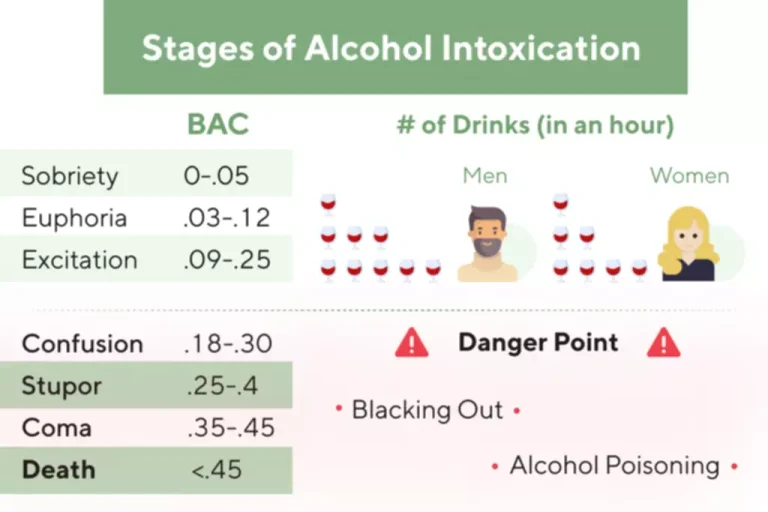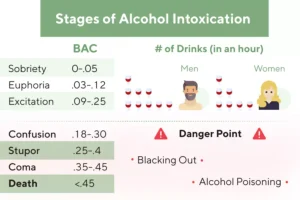Alcohol Withdrawal Seizures: Symptoms, Causes, Treatment, and More

Similarly, studies in rodents have shown that repeated alcohol withdrawal experiences increase the severity and duration of subsequent withdrawal seizures (85,86). These observations have led to the view that alcohol withdrawal causes permanent epileptogenic changes in brain systems relevant to ethanol withdrawal seizures—a type of kindling phenomenon. Indeed, in accordance with the central role of the IC in triggering alcohol withdrawal seizures, multiple alcohol withdrawal episodes in rats facilitate the development of IC kindling (87,88). In animals, benzodiazepines have yielded variable effects, in some cases slowing withdrawal-induced kindling, and in other cases, causing paradoxical worsening (65,66,89). Whether other agents used in the treatment of alcohol withdrawal have antiepileptogenic potential remains to be determined. In conclusion, alcohol and alcohol withdrawal can cause seizures, and it’s important to be aware of the risks if you or someone you know is struggling with alcohol abuse or withdrawal.
Medical

In a medical setting, healthcare providers may administer emergency medications to control seizures and monitor vital signs to alcohol rehab prevent any complications. They can also conduct a thorough evaluation to determine the underlying causes and assess the individual’s overall health condition. The Recovery Village Cherry Hill at Cooper offers comprehensive addiction treatment for drug and alcohol addictions and co-occurring mental health conditions.
Causes of Alcohol Withdrawal Seizures
Medical professionals can assess the severity of the seizures, provide necessary interventions, and ensure the individual’s safety. When it comes to managing alcohol withdrawal seizures, it is crucial to prioritize the safety and well-being of the individual experiencing these symptoms. Seeking appropriate medical attention, utilizing medications for seizure control, and providing supportive care and rehabilitation are key components in the management process. Approximately 2–5% of those who misuse alcohol will experience alcohol withdrawal seizures.

Personalized Treatment Plans
One of the potential consequences of AUD is the development of alcohol withdrawal syndrome when a person abruptly stops or significantly reduces their alcohol intake. Alcohol withdrawal occurs because the brain and body have become accustomed to the presence of alcohol. When alcohol is suddenly removed, the brain’s delicate balance is disrupted, leading to various withdrawal symptoms. These symptoms can range from mild to severe, depending on factors such as the duration and intensity of alcohol consumption. Experiencing seizures due to alcohol abuse can be a distressing and potentially life-threatening situation. If you or someone you know is facing this issue, it’s crucial to seek help and support.
- If you seek medical treatment before quitting alcohol cold turkey, you may be able to taper slowly with a medical professional’s help.
- Abrupt cessation of alcohol intake after prolonged heavy drinking may trigger alcohol withdrawal seizures.
- During the detoxification process, primary and secondary preventative measures can be taken.
The only definitive way to prevent alcohol withdrawal seizures is to avoid heavy alcohol consumption. For those struggling with alcohol dependency, seeking evidence-based treatment options and professional medical advice is critical to managing the risk of seizures and improving overall health.. Alcohol-induced seizures are serious and potentially life-threatening and can occur due to various factors related to alcohol use. A primary cause is the abrupt cessation of alcohol intake after heavy drinking, known as alcohol withdrawal.
- Detox centers provide supervision and, if necessary, medical support around the clock.
- Visual, auditory, and tactile hallucinations are frequently experienced in acute, complicated AW or DT’s.
The periaqueductal gray is thought to trigger clonic seizures, whereas the pontine reticular formation is implicated in the generation of the tonic phase of audiogenic seizures (18). Some evidence suggests that the IC plays a role in alcohol withdrawal seizures in humans, as it does in rodents. When it comes to alcohol withdrawal seizure symptoms, prevention and support are crucial for individuals struggling with alcohol dependence.
- The length of time you were drinking heavily, the amount you would drink regularly, and the amount you drank last.
- Taking the courageous first step toward recovery from alcohol use disorder is commendable, but it’s crucial to be aware of potential challenges, including alcohol withdrawal symptoms.
- Making lifestyle changes and adopting healthy coping strategies are also essential components of preventing relapse and maintaining sobriety.
- The tonic-clonic seizure is what most people think of when they hear the word “seizure.” This type of seizure used to be known as “grand mal” but that term is no longer used.
- Understanding the link between alcohol withdrawal and seizures, as well as the symptoms and timeline of alcohol withdrawal seizures, is crucial in addressing this issue.
- One of the more serious complications is the risk of seizures during alcohol withdrawal.
- However, if you’re experiencing some of these symptoms, it could also mean you are about to experience a potential symptom that is particular to alcohol withdrawal called delirium tremens.
- Additionally, a previous history of seizures or other neurological disorders may increase the risk of experiencing seizures during alcohol withdrawal.
- Remember, seeking professional help and support is crucial in overcoming alcohol abuse and maintaining long-term sobriety.
- Glutamate receptors adapt to alcohol’s depressant effects by increasing brain activity to compensate.
Educating patients about the potential for withdrawal-related psychosis is crucial, empowering them to make informed decisions about their cannabis use and seek timely support if needed. Developing targeted interventions to manage withdrawal symptoms, particularly sleep disturbances, could potentially mitigate the risk of psychosis. Incorporating routine screening for cannabis use and withdrawal symptoms into mental health assessments can facilitate early identification and intervention. Chronic alcohol abuse can disrupt the normal function of the brain, affecting neurotransmitters and neuronal activity. It can also lead to nutritional deficiencies, liver damage, and inflammation, which can further impact brain health. Free By the Sea offers a variety of services and programs, including those listed on this website, that are subject to change based on availability of providers and other circumstances.

Managing alcohol withdrawal seizures requires a comprehensive, medically supervised approach to ensure safety and long-term recovery. The only way to fully prevent alcohol withdrawal seizures and other symptoms of withdrawal is to not drink large quantities of alcohol. Whether over a long or short period, drinking alcohol in large quantities can cause your body to react when you stop drinking or reduce the amount you drink. Severe and potentially life threatening symptoms of alcohol withdrawal include seizures and delirium tremens (DTs).

How to Help Your Adult Child with Drug Addiction
However, the risk of seizures increases with the severity and duration of alcohol misuse. If you or someone you know is experiencing alcohol withdrawal symptoms, it is crucial to seek medical attention for proper assessment and guidance. It is essential to recognize the potential can withdrawal cause seizures risks and seek appropriate medical care and supervision during alcohol withdrawal. Alcohol withdrawal seizures can occur within 8 to 24 hours after heavy drinking is stopped. These seizures are typically generalized and may happen as a single seizure or in clusters over several hours. Sudden cessation of alcohol, especially after prolonged use, increases the risk of seizures from alcohol withdrawal.
This higher risk of severe withdrawal symptoms can happen even if you’ve used different kinds of central nervous symptom depressants. For instance, if you’ve gone through benzodiazepine withdrawal, you may experience severe withdrawal when going through alcohol withdrawal and vice versa. Despite its legal status and cultural acceptance, it is a serious psychoactive substance that can profoundly affect your health. Alcohol can be dangerous to abuse, but it can also be dangerous to quit too quickly. If you’ve been drinking heavily for a time and then quit cold turkey, you may experience some of the most dangerous withdrawal symptoms of any substance. Alcohol withdrawal can include dangerous symptoms like seizures, which can come on suddenly and lead to serious consequences.


